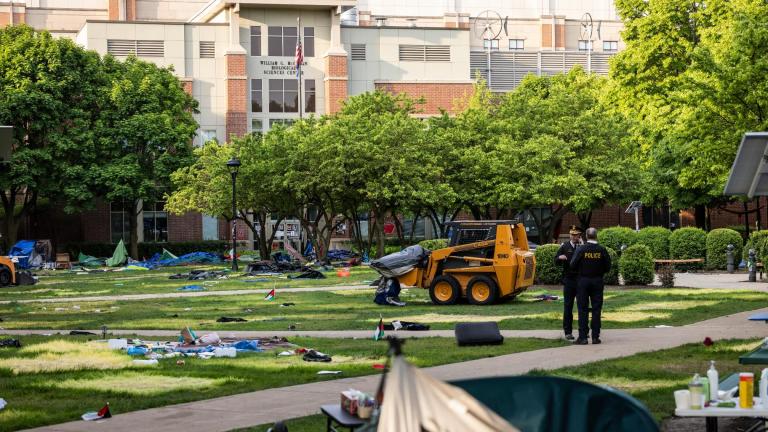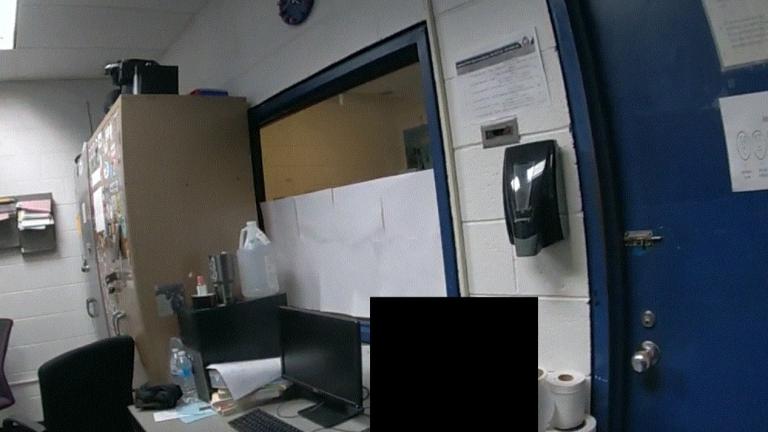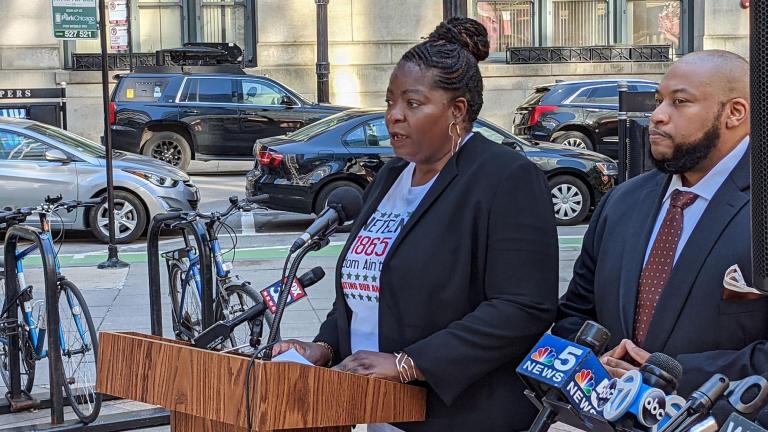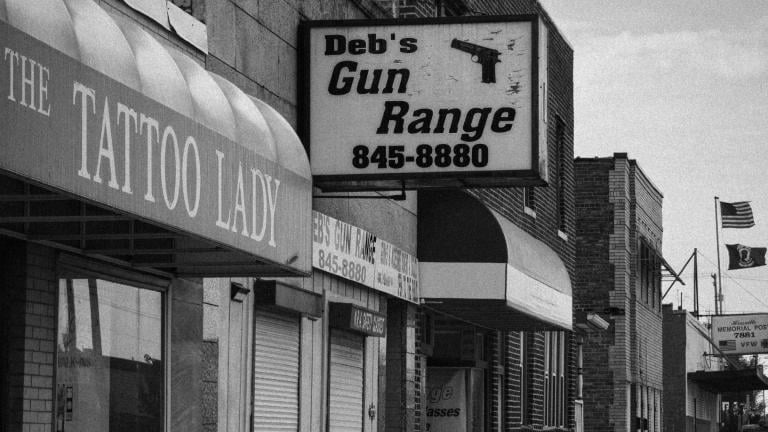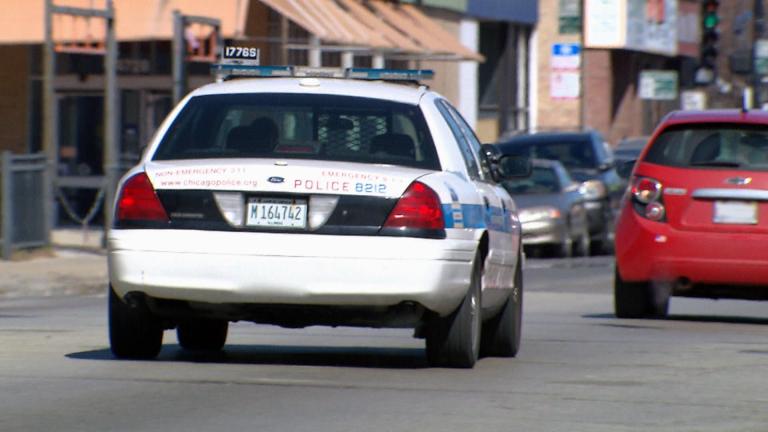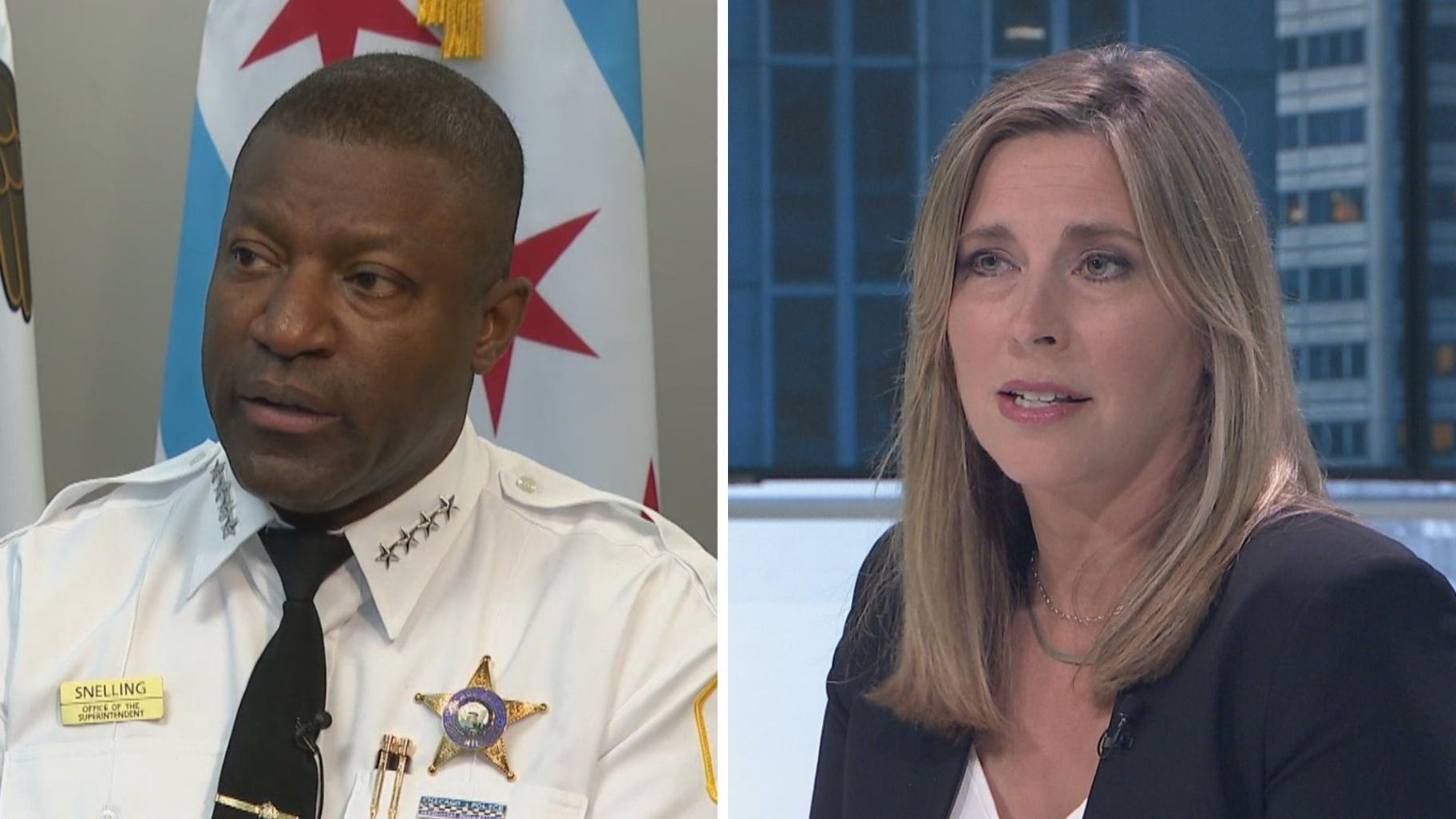 Left: Chicago Police Superintendent Larry Snelling appears on “Chicago Tonight: Black Voices” on Oct. 18, 2023. Right: Andrea Kersten, chief administrator of Chicago’s Civilian Office of Police Accountability, appears on “Chicago Tonight” on June 28, 2023. (WTTW News)
Left: Chicago Police Superintendent Larry Snelling appears on “Chicago Tonight: Black Voices” on Oct. 18, 2023. Right: Andrea Kersten, chief administrator of Chicago’s Civilian Office of Police Accountability, appears on “Chicago Tonight” on June 28, 2023. (WTTW News)
A little-noticed provision of the police union contract has exposed deep tension between Chicago’s top cop and the agency charged with investigating police misconduct over how to hold officers accountable for wrongdoing, as the department struggles to reform itself.
The agreement that extended the city’s contract with the Fraternal Order of Police, Lodge 7, until 2027 gave the Civilian Office of Police Accountability just 45 days to conclude all investigations that had been pending for more than 18 months. Otherwise, those cases would be closed, without resolution, according to the contract.
That part of the deal endorsed by Mayor Brandon Johnson and approved 42-8 by the Chicago City Council in December received no public scrutiny but set off a mad scramble by investigators at the agency known as COPA to review and complete more than 200 cases, Chief Administrator Andrea Kersten said.
In 26 cases that were part of that review, the probe by COPA found significant misconduct by an officer and Kersten urged that person be terminated. Since the start of the year, COPA has recommended 28 officers be fired, including 19 on a single day. By comparison, COPA recommended that 32 officers be fired in all of 2023.
Chicago Police Superintendent Larry Snelling now has until April 26 to decide whether to agree with those recommendations and launch the next phase of the lengthy process of firing a Chicago Police officer for misconduct. Snelling’s recommendations are then submitted to the Law Department, which is not required to act within a certain timeframe.
Even though those cases landed on his desk because of the provision negotiated by the union representing most of his officers, Snelling blamed the COPA leaders for the flood and told the Chicago Police Board it was evidence of bias by COPA investigators.
In lengthy remarks that contained searing criticism but that did not name her, Snelling blasted Kersten, the head of COPA, for treating Chicago Police officers so unfairly that they are at risk of suicide. The probes also compromise public safety, the city’s top cop said.
“We have officers right now who have been called murderers, who were simply trying to protect themselves or protect someone else,” Snelling said during the Feb. 22 Chicago Police Board meeting. “Unless we know the facts of that case, people will continue to call them murderers. We cannot allow that. We can’t, because those people become suicidal. Fairness, that’s all we ask. That’s all we ask.”
Neither Snelling nor the department’s top lawyer made any mention of the fact that the deluge of cases was due to COPA’s efforts to comply with the provision of the police union’s new contract requiring the agency to clear its backlog.
Nor did Snelling focus on the evidence of wrongdoing assembled by COPA against more than two dozen officers, many of whom likely remain active members of the police department.
Instead, Snelling told the Chicago Police Board that the probes — and recommendations for significant discipline — had not only impacted officers’ performance but was also “affecting the safety of members of the community.”
Without offering evidence, Snelling also accused Kersten of allowing “personal opinions and speculation” to influence findings that an officer has committed misconduct and should be disciplined.
COPA’s decisions have taken a toll on officers who must make “split-second decisions” that determine whether they go home to their family after their shift, Snelling said.
“When we speculate, when we add our personal opinions, then those penalties become punitive and unfair and unfair to the officers,” Snelling said.
Snelling said COPA had levied “egregious penalties for extremely minor infractions,” which he said had a profound impact on other officers.
“Now, oftentimes when I go through these reports, I agree that the infraction should have been sustained, but a 30-day, 90-day suspension is egregious,” Snelling said. “And what you do to that officer is you take him out of the rotation, because when that officer sees a suspension that large for such minor infraction, that officer stops working. This puts everyone in this city in danger. It puts our officers in danger, because now those officers are afraid to respond, because they’re worried about being judged unfairly.”
Snelling repeatedly said the department was capable of holding officers accountable of misconduct and said officers who commit “willful misconduct” have no place in the department. But those who make what Snelling called a “mistake” should not face punitive consequences, he said.
“These are human beings,” Snelling said. “Men and women who (err) at times. They make mistakes.”
Mayor Brandon Johnson told WTTW News on Wednesday he wasn’t sure which cases prompted Snelling’s concerns.
“I appreciate his perspective,” Johnson said, adding that he shared Snelling’s concerns about officer wellness. “We do have some challenges there.”
In an interview with WTTW News, Snelling said he was aware that the torrent of cases was prompted by the new police contract.
“What we were not aware of was that those cases would come in all at once,” Snelling said. “This is about communication.”
Snelling said he did not want to have an “adversarial” relationship with the agency charged with investigating most cases of police misconduct, but said COPA leaders must act in a timely manner to avoid harming officers’ mental health and compromising public safety.
Snelling’s public criticism of COPA echoes criticism lobbed at the agency by John Catanzara, the president of the police union who often describes his officers as struggling to do their jobs amid unfair and biased treatment by COPA.
Snelling’s predecessor as the city’s top cop, former Supt. David Brown, was hamstrung by low morale among officers who believed themselves to be under siege from officials and community groups demanding significant changes to policing. Those calls reached a fever pitch after the police murder of George Floyd in May 2020.
Snelling’s decision to publicly censure COPA, which is deeply unpopular among rank-and-file officers, could insulate him from attacks similar to the ones that brought down Brown.
But it could also significantly complicate efforts to implement court-ordered reforms that will require a sea change in the culture of the Chicago Police Department, which has faced decades of scandals, misconduct and brutality.
Snelling’s remarks come seven years after a probe by the U.S. Department of Justice found that Chicago police officers were rarely held accountable for misconduct because of badly broken systems as well as a “code of silence” among officers that allowed them to act with impunity.
CPD has fully complied with just 6% of the court order known as the consent decree designed to require the police department to change the way it trains, supervises and disciplines officers.
“I want to re-image this department,” Snelling said. “I want our officers to go out to the community and interact in a way that’s going to make each and every person in this room and in this city feel safe and comfortable walking to their cars. That becomes an impossibility when our officers are constantly painted with a broad brush in a negative light.”
Kersten was clearly caught off guard by Snelling’s remarks at the meeting of the police board, which has also had its operations upended by wrangling over the extension of the police union’s contract.
The police board was forced to delay several scheduled hearings after the City Council rejected a provision demanded by union leaders that would allow officers charged with serious misconduct to have their cases decided behind closed doors rather than during a public meeting of the police board.
“I want to ground us not just in feelings about officer wellness or feelings about prejudices you think are being applied in our cases, but I want to talk very specifically about numbers and facts,” Kersten said.
Just 18% of the cases decided by COPA officials recommended any form of discipline in 2023, according to the agency’s annual report. In nearly 22% of the cases in which COPA urged an officer be disciplined, the city’s top cop disagreed with the agency’s conclusions.
In about half of those cases, COPA deferred to the superintendent’s decision. It is up to the police board to resolve the cases where disagreement persists, Kersten said, acknowledging that those cases are often the subject of intense public scrutiny.
“I make no apology for the fact that we have a job to play in this system,” Kersten said. “No one came to COPA because they don’t want to support police or because they want to impart their personal prejudices on these investigations. It’s quite the opposite. And the body of our work would demonstrate that.”
Kersten also defended the conduct of her agency during an appearance Monday before the City Council’s Police and Fire Committee, where chair Ald. Chris Taliaferro (29th Ward) asked Kersten if she believed her agency’s probes contributed to officer suicides.
COPA has always “acted with integrity,” Kersten said.
“Accountability is never comfortable,” Kersten said, adding that officer wellness is a “complicated, complex issue.”
“It is myopic at best to view officer wellness through accountability,” Kersten said.
In all, the agency is investigating approximately 600 cases, according to Kersten. That is down significantly since October, when there were 973 open cases.
Taliaferro praised Kersten for reducing COPA’s backlog.
“You’re doing a fine job getting those numbers down,” Taliaferro said.
Kersten launched an effort in June to reduce the agency’s backlog by closing cases more than 18 months old that did not allege misconduct by officers. Those cases compromised COPA’s ability to probe more recent complaints alleging significant misconduct by officers, Kersten said.
That initiative was prompted after Kersten saw dozens of recommendations for discipline overturned or significantly reduced by arbitrators, who are charged with ensuring that employees are treated fairly during disciplinary actions by ensuring complaints are handled swiftly, typically within 18 months, and that any punishment is in line with consequences faced by other officers with similar allegations.
Probes that take longer than 18 months almost never result in discipline for officers that is upheld after arbitration, Kersten said.
Through December, 642 cases had been closed through that initiative.
COPA replaced the Independent Police Review Authority, known as IPRA, in September 2017 as part of reforms triggered by outrage over the 2014 police murder of 17-year-old Laquan McDonald. Kersten is the fourth person to lead COPA in its less than seven years of existence.
When COPA launched, it inherited nearly 1,000 cases from IPRA. It took until 2021 to resolve those complaints, Kersten said.
Just as COPA officials cleared the IPRA backlog, the agency was swamped with nearly 400 complaints of police misconduct during the unrest that swept the city in the wake of Floyd’s murder.
Contact Heather Cherone: @HeatherCherone | (773) 569-1863 | [email protected]

